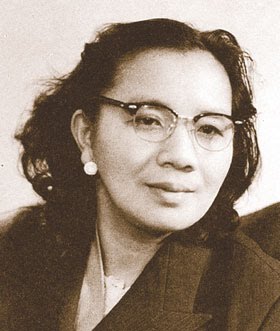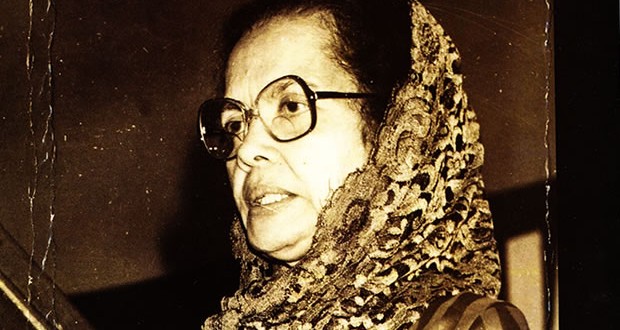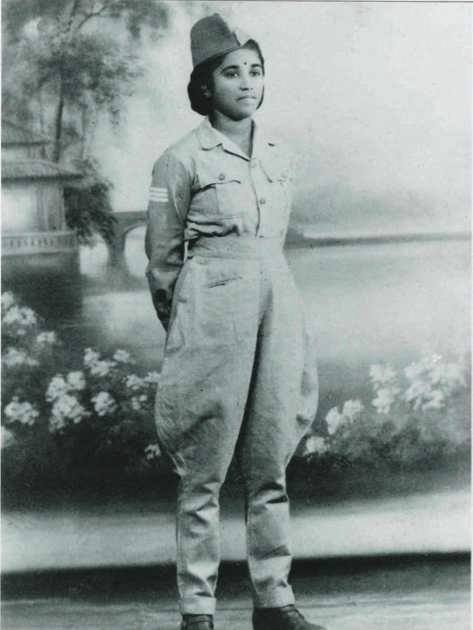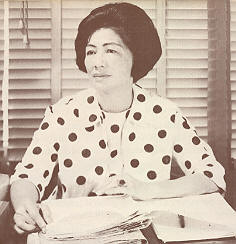
Freedom fighter Shamsiah Fakeh (1924-2008). Born in Kuala Pilah, Negeri Sembilan in 1924, Shamsiah received her early education at the Madrasah Aliah Islaiah in Negeri Sembilan and Madrasah Tuddimiah in Padang, Sumatera, experiences that sparked her early political consciousness. As a young woman she stood out as a powerful orator and was sought after by different political parties including UMNO. She chose the path of the Malay Nationalist Party (Parti Kebangsaan Melayu Malaya) as she believed in their fight towards independence from the British. Shamsiah became an important leader of PKMM’s women’s wing and the first women’s movement in Malaya, AWAS (Angkatan Wanita Sedar). When the British banned PKMM, followed by a mass arrest of left-leaning leaders in 1948, Shamsiah moved her fight towards independence in the jungles by joining the Communist Party of Malaya under the 10th Regiment of the Malayan People’s Liberation Army in their armed resistance. She was a leader in the Communist Party and was a jungle guerrilla for eight years. In 1956, Shamsiah and her husband, Ibrahim Mohamad, were sent to China for further education. They served as broadcasters with the Radio Peking’s Malay language service. In 1965 they were imprisoned for two years in Indonesia during anti-communist crackdowns. They returned to China and lived there until 1994 when they were finally allowed to come home to Malaysia. In the foreword of her memoir, Shamsiah writes: “I was merely a woman fighting the British for my country’s independence and the emancipation of women.” She died in 2008 in Kuala Lumpur.
For more information on Shamsiah Fakeh, read her autobiography “Memoir Shamsiah Fakeh: Dari AWAS Ke Rejimen Ke-10” published by SIRD/ Gerakbudaya: http://bit.ly/1prrIyX (English version: http://bit.ly/1ohnnz6) . Go to this link for a song tribute to this revolutionary independence fighter: http://bit.ly/ZJoYrC



